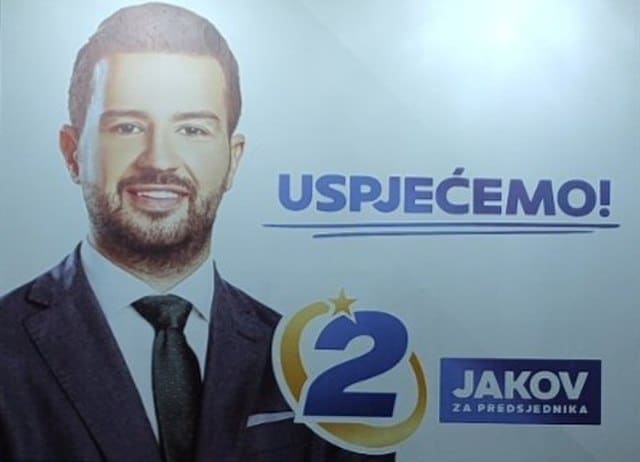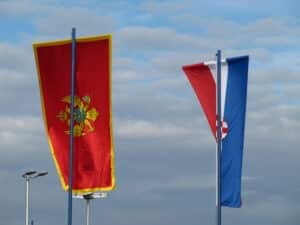On Sunday April 2, Jakov Milatović (Europe Now) – who is supported by the ruling majority – has won the run off round of the Montenegrin presidential election. This ends incumbent Milo Đukanović’ (Democratic Party of Socialists) three-decade spell in prominent government positions. While Montenegro is expected to maintain its pro-EU course, critics are skeptical about the economic woes and corruption issues Milatović will inherit, as well as his pro-Serbian agenda.
Results
Sunday’s result rendered expert predictions correct, as Milatović obtained a strong majority with 60,1% of the vote against 39,9% for Đukanović. With 70,7%, voter turnout for this election was notably higher than the presidential election of 2018 (63%). Although Đukanović won the most votes in the first round of the election with around 35%, experts had predicted a Milatović victory in the run-off as all other opponents had called upon their supporters to vote for Milatović. According to two election watchdogs, the run-off round was marked by several irregularities. Party activists were reportedly seen recording and giving money to voters. Đukanović’ DPS, furthermore, claimed that its activists were intimidated in the towns of Niksić and Bar.
Reactions
Despite the allegations, Đukanović has admitted his defeat. “Montenegro chose and I respect that choice. I wish Milatović to be a successful president and that Montenegro continues to be a successful country”, said Đukanović. For now, Montenegro loses its most influential politician of over three decades. Đukanović served five terms as Prime Minister and two as President, guiding his country to independence in 2006 and NATO membership in 2017. Milatović, naturally, gave a cheerful reaction to the result: “Tonight is the night we have been waiting for over 30 years. Within the next five years, we will lead Montenegro into the European Union”.
Difficult task awaits Milatović
Before founding his liberal Europe Now-party in 2022, Milatović served as Minister of Economics in Zdravko Krivokapić’ government, which ruled for less than eighteen months from December 2020 to April 2022. Milatović is Western-educated and considered to be strongly pro-Western. Remarkably, however, Milatović is also in favour of improved ties with Serbia. Rumour has it he is supported by the Serbian Orthodox Church. “I want to establish the best relations with Serbia and other neighbouring countries, not for my sake, but for the sake of the citizens of Montenegro”, Milatović has said. The result is a significant boost for the Europe Now-party ahead of the parliamentary election on 11 June. In Montenegro, most power lies with the Prime Minister, as the President fulfils a relatively ceremonial role. If the Europe Now-party were to emerge victorious in June, a difficult task awaits. Combined with the COVID-19 pandemic – which shrunk the economy by 15% – Podgorica is plagued by its dependence on trade and tourism from Russia and a large debt with China.
Author: David Groenen



